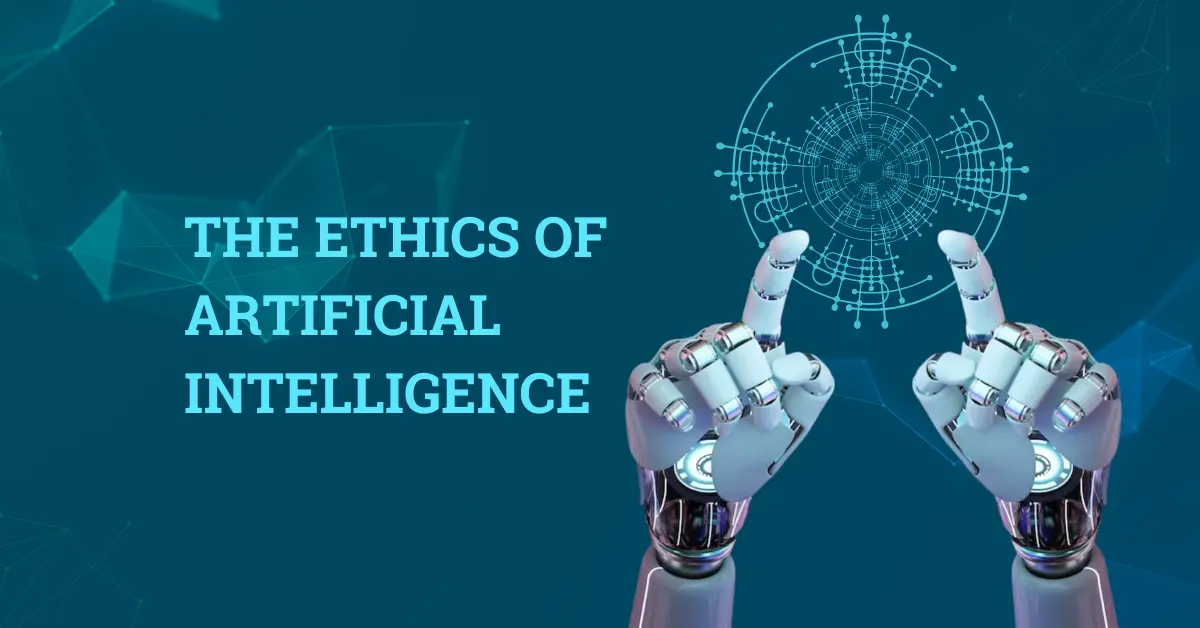Imagine a world where algorithms determine your job eligibility, healthcare options, or even prison sentences. This isn’t science fiction—it’s happening today. As artificial intelligence (AI) systems increasingly influence high-stakes decisions, ethical questions demand urgent answers. From hiring algorithms to predictive policing, AI’s role in decision-making is expanding rapidly. But who ensures these systems act fairly, transparently, and responsibly? Let’s explore the ethical minefield of AI and debate how we can harness its power without sacrificing human values.
Examples of AI in Everyday Applications
AI is integrated into numerous applications we use daily. For instance, Google Maps employs AI to provide navigation options, suggesting routes based on real-time traffic data. Ride-sharing apps like Uber and Ola utilize AI to connect riders with drivers efficiently, ensuring a smooth experience. Facial recognition technology in smartphones is another example, where AI enables devices to recognize users based on their facial features.
The Flip Side: Risks Associated with AI
Despite its many benefits, AI can also lead to negative outcomes. For example, reliance on Google Maps can sometimes result in incorrect directions, leading users astray. Similarly, smart assistants may behave unexpectedly, reflecting the quality of their programming and the data they learn from.
AI in Decision-Making: Transforming Industries

AI is revolutionizing decision-making by processing vast amounts of data, recognizing patterns, and making predictions faster and more accurately than humans. This transformation is enhancing efficiency across various industries:
Key Areas Where AI is Making a Difference
✅ Healthcare: AI assists doctors by diagnosing diseases early and recommending personalized treatments.
✅ Finance: Banks leverage AI to detect fraud, assess creditworthiness, and approve loans.
✅ Hiring & HR: Companies use AI-driven tools to scan resumes, shortlist candidates, and even conduct initial interviews.
✅ Law Enforcement: AI-powered surveillance and predictive analytics help authorities prevent crime and enhance public safety.
Ethical Concerns in AI Decision-Making
AI is transforming decision-making across various industries, but it also raises critical ethical issues. Here are some key concerns:
1. AI Bias: Can AI Be Fair?
AI learns from data, and if that data has biases, AI can make unfair decisions.
🔹 Example:
- A hiring AI prefers men over women because the company’s past data showed more male employees.
- AI used in law enforcement wrongly targets specific communities based on biased historical crime data.
2. The Black Box Problem: How Does AI Make Decisions?
Many AI models work like a “black box”—we see the results, but we don’t know how the AI made its decision.
🔹 Example:
- An AI rejects your loan application, but the bank can’t explain why.
- A self-driving car makes a decision in an accident, but no one understands why it chose one action over another.
3. Privacy Issues: How Much Does AI Know About You?
AI needs a lot of data to work well, but this raises concerns about privacy and security.
🔹 Example:
- Social media AI tracks everything you like, share, and search.
AI-powered facial recognition cameras in public places can monitor people without their consent. - AI medical systems store personal health data—what if it gets hacked?
4. AI Replacing Jobs: What Happens to Human Workers?
AI can do some jobs better than humans, which means some people may lose their jobs.
🔹 Example:
- AI chatbots replace customer service agents.
- Self-checkout machines replace cashiers.
- AI-powered software writes articles, reducing the need for human writers.
What is Responsible AI?
Responsible AI refers to the ethical and accountable development, deployment, and use of artificial intelligence (AI) systems. It ensures that AI technologies are designed and implemented in ways that are fair, transparent, secure, and beneficial to society. Responsible AI aims to prevent bias, discrimination, privacy violations, and unintended harm.
Key Principles of Responsible AI
- Fairness – AI should provide unbiased and equitable outcomes, avoiding discrimination.
- Transparency – AI models and their decision-making processes should be understandable and explainable.
- Accountability – Developers and organizations should take responsibility for AI systems and their impact.
- Privacy & Security – AI must respect user data privacy and be protected against cyber threats.
- Human-Centered Design – AI should be developed with human values, ethics, and well-being in mind.
- Sustainability – AI should be environmentally responsible, minimizing energy consumption.
- Regulatory Compliance – AI must adhere to laws and industry standards.
Benefits of Responsible AI

some benefits of responsible AI:
Building Trust and Credibility:
Implementing a robust AI code of ethics fosters trust among users and stakeholders. When people see AI systems operating transparently, fairly, and accountably, they are more likely to trust and engage with them. This trust strengthens relationships between users and AI-driven technologies, ultimately enhancing credibility and acceptance.
Ensuring Fairness and Equity:
Ethical AI prioritizes fairness by reducing biases and discrimination in AI algorithms. By proactively identifying and mitigating biases in data and decision-making processes, responsible AI ensures fairness and impartiality, regardless of an individual’s demographic background. This commitment to equity fosters inclusivity and social cohesion while benefiting marginalized communities.
Protecting Privacy and Securing Data:
Adopting responsible AI involves implementing stringent measures to protect individuals’ privacy and safeguard sensitive data. Organizations that enforce strong data protection protocols and comply with privacy regulations demonstrate their commitment to respecting users’ privacy rights. This approach not only strengthens user trust but also reduces the risks of data breaches and unauthorized access, ensuring information security.
Regulatory Compliance and Risk Management:
Ethical AI practices help organizations adhere to legal and regulatory frameworks governing AI technologies. By aligning with AI codes of ethics and industry standards, companies can minimize legal risks and potential liabilities associated with non-compliance. A proactive stance on regulatory adherence enhances an organization’s resilience and protects its reputation from potential challenges.
The Future of AI Ethics
The future of AI ethics will be influenced by rapid technological advancements, shifting societal values, and the collaborative efforts of global stakeholders. Key developments to monitor include:
AI for Social Good: There is an increasing focus on harnessing AI to address critical global issues like poverty alleviation, improving healthcare, and promoting environmental sustainability. This trend emphasizes the potential of AI to drive positive societal impact.
Ethical AI Certification: With rising awareness around AI ethics, we may witness the introduction of certification programs that verify the ethical compliance of AI systems. These certifications could guide consumers and businesses in making responsible decisions when adopting AI technologies.
Improved Explainability: Progress in explainable AI (XAI) methods is expected to enhance the transparency and interpretability of AI systems. This can foster greater trust and ensure accountability in AI decision-making processes.
Global Cooperation: Collaborative international efforts play a crucial role in establishing consistent AI ethical standards. Organizations like the United Nations and the European Union are working toward creating frameworks to address cross-border AI challenges and promote ethical practices worldwide.
Conclusion
The responsible development of AI isn’t just about technology—it’s about people. Ethical AI requires a balanced approach that considers fairness, transparency, and accountability at every stage. Organizations must define clear ethical principles, integrate them into AI development, and ensure ongoing compliance through governance and education.
By keeping human values at the core, businesses can unlock AI’s potential responsibly, fostering innovation while minimizing risks. The goal is not just to create powerful AI but to ensure it benefits everyone—building a future where AI serves humanity ethically, fairly, and transparently.
